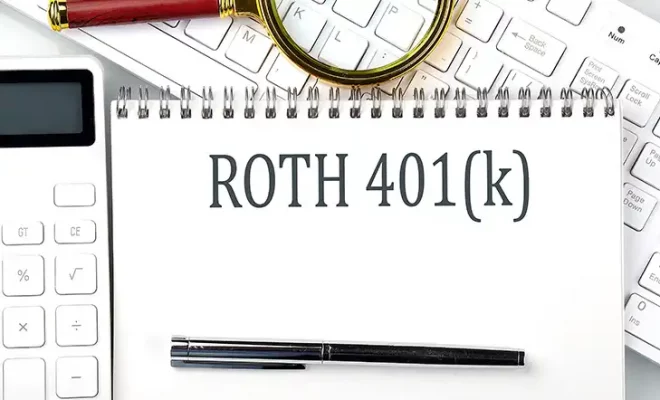Is $1 Million Dollars Enough for Retirement?
In the past, having a nest egg of $1 million was thought to be a financial goal to aspire for when it came to measuring retirement planning success. It was deemed to be a sufficient amount that you could live on comfortably and leave a legacy for your heirs. For some, this still may be true, but for others, $1 million may not be enough as external factors such as inflation may erode the value of the dollar in the future resulting in you needing more money to meet your expenses. A million dollars seems like a lot of money, but you’d be surprised to know that, as per a recent study, a $1 million nest egg would last you only 15 years on average in retirement.
Let’s crunch some numbers. According to a recent study, an average American retiree spends approximately $66,000 on food, housing, clothes, transportation, and other lifestyle expenses each year. If this trend continues in retirement, it would amount to roughly $5,500 per month. Suppose you had $1,000,000 saved for retirement, this sum would last you around 15 years until you went broke. As per recent estimates, to have adequate funds for a 35-year retirement, you would need $765,000 in savings. This number is not set in stone as one has to take various factors into consideration such as the rate of return on your assets, the rate at which you withdraw your savings, and inflation. To learn more about how you can counter inflation and stretch your savings, consult with a professional financial advisor who can advise you. Further, he can also help you boost your investment returns and pick the right investments based on your risk tolerance.
Let us find out how long 1 million may last you in retirement and why it may not be enough to see you through your golden years.
Table of Contents
How long can $1 million be stretched in retirement?
To find out how long you can stretch a million dollars in retirement, you need to consider the following factors:
Where you live:
The state or city where you live plays an important role in determining how long your $1 million would last in retirement. As per a recent study, it was found that an average retiree living in New York city would exhaust $1 million in 10.21 years whereas if you resided in McAllen, Texas, that same $1 million would last 32.26 years for you.
Your lifespan:
No one can truly know how long they will live but you can make an informed estimate based on your present health and family history. People with longer life spans may find it a struggle to live on $1 million as it may prove to be insufficient to last them through their retirement years.
Your lifestyle habits:
Whether you choose to live in an extravagant fashion or in a frugal manner would go a long way towards deciding how long your $1 million nest egg would last. If you like to spend money lavishly, you would require a bigger savings fund to last you through retirement.
Your medical and healthcare costs:
As per the 2021 Fidelity Retiree Health Care Cost Estimate, an average couple may expect to spend $300,000 on health care expenditures if they choose to retire in 2021. If you are on the healthier end of the spectrum, you may have lesser health expenses that would enable you to stretch your retirement savings.
Your retirement income:
You need multiple sources of income to support your retirement lifestyle and cannot rely solely on your retirement savings. Look for freelance opportunities, invest in safe investment vehicles such as bonds or dividend-paying stocks to generate a regular supply of income. Also, you can bank on Social Security benefits if you won’t be receiving a pension in retirement.
Your risk appetite:
You need to be careful when it comes to investing as you approach retirement age. Take a careful look at your portfolio to assess where you have invested your funds. Strike a balance between investing aggressively or conservatively since if you invest in high-risk securities you may lose your money due to market volatility. On the other hand, if you are too cautious your investments may not grow at a fast clip to counteract the effect of inflation leaving you short of savings in retirement.
Rate of inflation:
Over the past few years the annual rate of inflation has been relatively low in the US (1.2% in 2020), there is no assurance that this trend will continue. Over time inflation weakens the buying power of money resulting in retirees’ savings depletion at a faster rate.
Effect of taxes:
Taxes can play spoilsport especially if all of your retirement assets are invested in tax-deferred accounts such as a 401(k) or conventional IRA. Any withdrawals made by you are subject to income taxes similar to your salary. However, if you have invested in tax-advantaged retirement accounts such as a Roth IRA or a Roth 401(k), you do not have to pay income taxes on partial or all of the funds withdrawn by you provided you meet certain withdrawal rules set by the IRS.
It is challenging to create a uniform plan that lays down the rules for retiring with a large retirement corpus. It is entirely possible for some retirees to live on less than $1 million quite comfortably while for others that may not be the case. Additionally, $1 million may seem to be a large sum of money, and out of the reach of a majority of investors, but with the power of compounding, one can reach this magic figure. Say, for instance, you start saving $400 per month as a 25-year-old. By the time you reach the age of 65, you would have accumulated $1 million, assuming a 7% annualized return on investment. Moreover, if you have a 401(k) plan, and your employer also matches your contributions, it can significantly increase your retirement savings.
It is ideal if you start saving at a relatively young age when you have minimal costs to take care of so you can prioritize retirement savings, especially before life events such as marriage, children, or buying a home. You can also augment your savings by reducing your expenses, fewer taxes, and exploring low-cost investing choices. To reach a $1 million savings goal, you need to take advantage of opportunities along with making use of professional financial advice. This would also enable you to stretch your $1 million to last through your golden years.
How to calculate the ideal retirement amount that would cover your financial needs
As you grow older and move closer to retirement, your needs and wants may undergo a change as well. What you were spending on living expenses each year may also undergo a similar change due to rising inflation costs or an increase in your healthcare expenses. What can you do when you’re about to retire but you have not yet reached the retirement savings goal that you had in mind? There is no need to panic, you still have options. There are ways through which you can reduce your expenses. Take housing, for instance, it is by far the most expensive expense both pre-and post-retirement so any savings you make there would go a long way towards reducing your savings gap.
As per the latest numbers by the Bureau of Labor Statistics, 58 percent of homeowners between the ages of 55 and 64 are still paying a mortgage. On average the monthly mortgage payments would be around $1,000 coming to almost $12,000 each year. In addition, you still have not factored additional expenses that you may incur such as house repairs, maintenance, and other housing costs. This is why clearing your mortgage before retirement can be a big boost for you as you will end up saving thousands of dollars per year. Before taking this step, however, you may want to consult with a professional financial advisor to understand the ramifications of this decision.
Several other factors such as travel, taxes, your child or grandchild’s education costs can also have an impact on how much you’ll need to live comfortably in retirement.
Now let us talk about how much money you need to retire. This is determined by your goals, tax status, and the amount of time you will be drawing a salary or an income before you stop working.
First, you need to ascertain how much money you will withdraw each year once you have retired. Next, you need to find out how much money you’ll need in your retirement corpus before you can call it a day and keep those withdrawals going. This is a good time to approach a financial expert who can help guide you and arrive at the right numbers. The advisor can assist you in calculating how much money to put up for retirement:
- Calculate your assured retirement income after taking into account income from sources like Social Security and pensions.
- Assess your projected expenses depending on your debt and lifestyle needs and wants.
- Determine any deficits that will need to be covered by making up the shortfall through your retirement savings.
The most common mistake made by most people is that they fail to take into account all of their expenses. You may calculate your average monthly expenses but either fail or forget to consider other regular or one-time expenses such as presents, vacations, travel, and home décor, which may add up a lot quicker than you may expect.
When you are setting your retirement savings goal, you need to consider the amount that you wish to withdraw from your retirement accounts every year. Traditionally, it is advised that you may withdraw not more than 4% from your retirement accounts. This comes out to (4% of $1 million) $40,000 for retirement expenses each year. If you do not see yourself living on $40,000 each year plus Social Security, you may need to reevaluate your savings goal.
To conclude
For most folks hitting the $1 million retirement target is a magic number, and to become a millionaire, one must either get lucky and win a lottery or receive a large inheritance. But there is another way to reach the million magic number! If you are in your 20’s or 30’s, you have enough time to save. However, you must take it up as a priority and remember the maxim the sooner you begin investing, the more time your money has to grow.
But if you think you are a little late, there is no need to panic. You still have ample time to begin and grow your savings. Start by reaching out to a professional financial advisor who can help you design a strategy for achieving your retirement goals. It is important to understand that everyone’s financial position is unique and your financial strategy would be based on your present financial situation and future aspirations.
Confused about the most retirement planning strategies for your unique financial needs and goals? Use Wiser Advisor’s free advisor match tool and get matched with 1-3 qualified advisors who may be able to help you with your unique financial requirements.

















